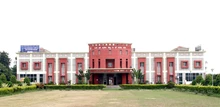
Early this year, a group led by Cary Fowler, the United States' Special Envoy for Global Food Security, met with the Minister and his team in the Government Complex in Lusaka, Zambia's capital, to discuss a range of agricultural development concerns affecting the country.
Govaerts' visit coincided with the launch of the new Accelerated Innovation Delivery Initiative (AID-I), a CIMMYT-led project supported by the US Agency for International Development (USAID). The initiative aims to scale up promising technologies that have the potential to alter the maize and legume value chains in southern Africa, with a focus on Zambia, Malawi, and Tanzania.
"As the Zambian government, we seek to build a private-sector-driven economy, with agriculture playing a significant part. Having progressive partners like CIMMYT helps us reach this goal, and this new initiative is well appreciated," Phiri said. The AID-I project aims to strengthen seed systems, promote and adopt stress-tolerant maize and legume varieties, demonstrate effective agricultural practices that respond to the effects of climate change, and address systemic restrictions in maize and legume value chains.
CIMMYT experts are collaborating with over 20 global, regional, national, and local partners through AID-I, including the Alliance for a Green Revolution in Africa (AGRA), Catholic Relief Services (TLC), Total Land Care (TLC), the International Water Management Institute (IMWI), and the World Vegetable Center. Hambulo Ngoma, AID-I Technical Lead and CIMMYT Scientist, also attended the meeting and discussed some of the most recent project activities.
"Since this initiative focuses on expedited delivery, we have put up more than 40 demonstrations in eastern Zambia to showcase stress-tolerant maize and legume varieties under conservation agriculture. Furthermore, we are demonstrating other effective agricultural methods such as strip cropping, which not only improves enhanced crop output but also serves as a biological control for autumn armyworm," Ngoma explained.
The Minister praised the project's reasoning and stated that participatory variety selection for farmers was critical if they were to maximize their yields and revenues from farming. Phiri went on to say that CIMMYT and partners' investment in legume value chain strengthening came at a good moment because increasing soya bean production was a key objective in the government's strategic plan for agricultural development due to the region's export-ready market.
"We are trying to sell legumes such as soya and groundnuts to East Africa, and markets such as Zimbabwe, Mozambique, and Tanzania can easily absorb the soya we produce. As a result, this project fits extremely well inside our strategic road map," Phiri explained.
The demonstration plots established by CIMMYT experts will assist farmers in growing the proper varieties for local agro ecologies and having higher response capabilities to the export market opportunities made available by the government. The Minister also expressed his expectation that CIMMYT will help boost the country's capacity to deal with autumn armyworm.
B.M. Prasanna, Director of the CIMMYT Global Maize Program, reassured Phiri that CIMMYT had already issued three fall armyworm-tolerant cultivars through the Zambian Agricultural Research Institute (ZARI). He also addressed how the AID-I initiative would aid in increasing their uptake, particularly among smallholder farmers with limited disposable cash to purchase adequate pesticides to control the pest. Govaerts concluded the discussion by stating CIMMYT's commitment to assisting Zambia in attaining its food security and agricultural export goals.
"At CIMMYT, we want you to see us as a partner in listening." We believe that the best way to tackle climate change and achieve shared prosperity is through the strength of convening power, in which we leverage one other's strength." Because the project is focused on growing current promising technologies and ideas, rapid transformative effects for the people of Zambia are on the horizon.











